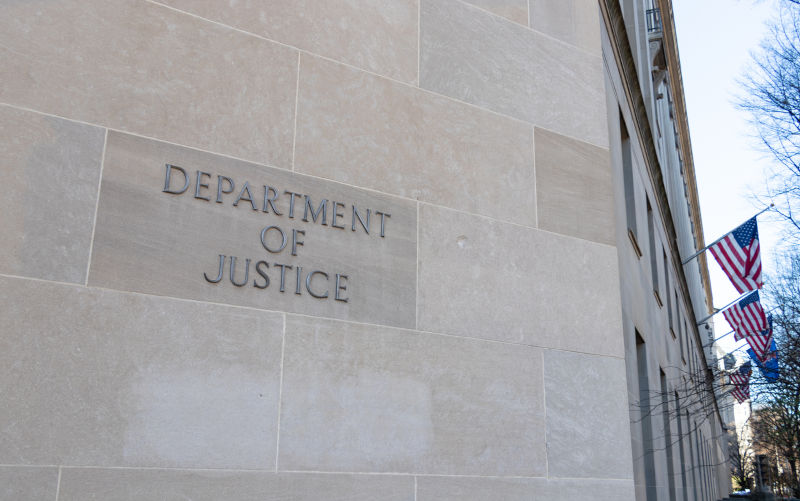Red scare in US causes multi-year flood of refugees with PhDs to China
May 8, 2023
OECD data shows China sustains net gain of scientists while US suffers net loss as ethnic Chinese researchers fear US government surveillance and prosecution.
The United States may want to choke off vital supplies of hi-tech gear, especially advanced semiconductors, to China. But, thanks to a red scare about industrial espionage and intellectual property theft that has specifically targeted ethnic Chinese researchers, it is inadvertently repatriating scientific talent to the mainland on a massive scale.
Its an influx of refugees all right, but with PhDs and other advanced degrees, and many even with tenures back in the US. Forget Beijings Thousand Talents Plan or Overseas High-Level Talent Recruitment Programmes. The US government is recruiting for China by creating a climate of fear among an ethnic group of researchers through selective prosecution, while casting hundreds under suspicion and killing the careers of many.
In a new analysis of Organisation for Economic Cooperation and Development (OECD) data, the conservative Cato Institute found that in 2021, the US lost published research scientists to other countries, while China gained more than 2,408.
This was a remarkable turnaround from as recently as 2017 when the United States picked up 4,292 scientists and China picked up just 116, it said. The rest of the OECD and China have both surpassed the United States for net inflow of scientific authors.
The institute concludes: This is a disturbing trend started before the pandemic. In fact, it appears to coincide with the Trump administrations China Initiative more accurately titled the antiChinese initiative.
Launched in November 2018, the Department of Justices campaign was supposed to combat the overblown threat of intellectual property theft and espionage. In reality, it involved repeatedly intimidating institutions that employed scientists of Chinese heritage and attempting malicious failed prosecutions of scientists who worked with institutions in China.
While the FBI and Justice Department have supposedly ended its China initiative, the US National Institutes of Health (NIH), the countrys single largest funding source of academic biomedical research, has been boasting about its high kill rates.
According toa March reportin the prestigious peer-reviewed journal Science, in the past four years, the NIH asked about 100 US institutions it funded to carry out internal investigations into academic staff. Some 81 per cent of the scientists targeted identified themselves as Asian, and 91 per cent of the collaborations under investigations were linked to China.
Science reports that 103 of those scientists, or 42 per cent of the 246 targeted most of them tenured faculty members ended up losing their jobs.
Even today, top NIH management is proud of the work, having cited the high number of successful cases resulting in job termination. But, according to Science, some administrators might find it easier to sack an employee than fighting the powerful NIH.
Others, including some of the scientists targeted and the university administrators involved in investigating them, say the tremendous power differential between NIH and its grantees may be a better explanation for why so many scientists have been axed, the Science article said.
NIH is by far the largest funder of academic biomedical research in the United States, and some medical centres receive hundreds of millions of dollars annually from the agency. So when senior administrators heard [Michael Lauer, head of NIHs extramural research] say a targeted scientist was not welcome in the NIH ecosystem, they understood immediately what he meant and that he was expecting action.
Separately, a late 2021 survey by MIT Technology Review identified at least 77 criminal cases and more than 150 defendants, out of hundreds of investigations linked to the China Initiative targeting research institutes.
The initiative was supposed to focus on economic espionage, but it has increasingly charged academics with research integrity issues, it said.
According to another survey by researchers at the University of Arizona, more than one in two scientists of Chinese descent feel considerable fear, anxiety, or both, about being surveilled by the US government, compared to 12 per cent of non-Chinese scientists.
The climate of fear noted by the Cato Institute study is hardly surprising. It warns: If Chinese scientists are afraid to work in the United States, that means that the United States will not benefit from their discoveries as much or as quickly as China will.
Although the Justice Department claims to have shut down its China Initiative, my colleagues doubt that Chinese scientists will be free from unjust scrutiny going forward.
Beijing must love the irony. Keep them coming, please, it must be thinking.
First published in The South China Morning Post May 2, 2023

